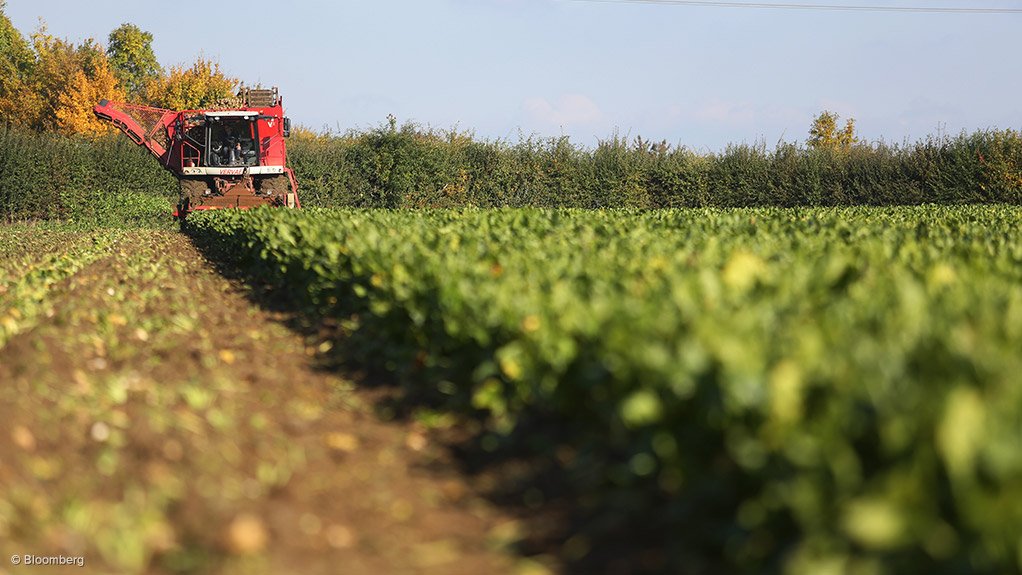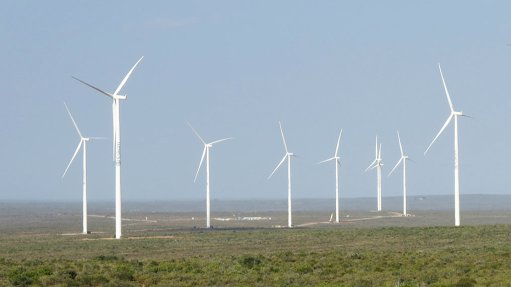Organisations warn suboptimal land reform is among factors impacting agri sustainability
Although the South African agriculture sector has made some respectable gains in growth and development in recent years, there are threats on the horizon that could negate the gains of the last decade, say research organisations the Bureau for Economic Research (BER) and the Bureau for Food and Agricultural Policy (BFAP).
For context, the organisations say the value of local agriculture output more than doubled in real terms since 1994, which was largely driven by increased productivity from investments in technological innovation, as well as growth in traditional and new export markets.
The horticulture sector, for example, has expanded production well beyond the initial 2030 targets envisioned by the National Development Plan (NDP).
However, this industry’s growth has slowed down as it faces multiple challenges, including disruptions in the global shipping industry and domestic challenges related to port capacity and efficiency of operations.
The organisations agree that the agriculture sector is increasingly struggling to navigate non-tariff protective trade measures, which requires an effective partnership between the private sector and government to negotiate.
Another example is that of the poultry industry, which has grown to be the largest contributor to South Africa’s livestock output and has achieved about one-third of the envisaged growth in the first ten years of the NDP.
However, sluggish growth in the local economy is affecting profitability in the industry, on top of the industry having struggled for many years to compete against dumped imports.
As it stands, the poultry industry remains challenged by the current cycle of high feed product prices globally, additional costs of loadshedding, poor municipal service delivery in many regions and a spread of Avian Influenza.
These factors present risks to the sustainability of recent investments into the industry.
LAND ISSUES
Moreover, the BFAP and the BER point out, the local agriculture sector remains plagued by dualism – the divide between black and white farmers in South Africa.
Agricultural economist and author Wandile Sihlobo says black farmers' total share of farm output has been held up by a combination of factors. These include the poor and slow implementation of land reform, poor policy implementation, inefficient programmes and bureaucratic delays and poor coordination within government.
The BFAP and the BER agree that the current dualistic farming structure in South Africa is not sustainable and that an important part of removing dualism is an efficient land reform programme.
The general perception is that the land reform programme has failed to deliver a recognisable shift in ownership patterns.
However, the real situation is more nuanced, the organisations explain.
This is because land reform is made up of a number of initiatives. These include redistribution, restitution, financial compensation, private acquisition and State acquisition.
In 2012, the NDP set a target to redistribute (or restore) 30%, or 23.7-million hectares, of all freehold agricultural land to black South Africans by 2030.
“We have estimated that South Africa has now almost reached 25%. The dilemma is, however, that the State is one of the largest owners of farm land, owning a total of 11-million hectares.
If the State does not transfer this land to individual commercial farmers with clear purpose, South Africa will remain a country of “two agricultures”, the organisations warn.
Article Enquiry
Email Article
Save Article
Feedback
To advertise email advertising@creamermedia.co.za or click here
Press Office
Announcements
What's On
Subscribe to improve your user experience...
Option 1 (equivalent of R125 a month):
Receive a weekly copy of Creamer Media's Engineering News & Mining Weekly magazine
(print copy for those in South Africa and e-magazine for those outside of South Africa)
Receive daily email newsletters
Access to full search results
Access archive of magazine back copies
Access to Projects in Progress
Access to ONE Research Report of your choice in PDF format
Option 2 (equivalent of R375 a month):
All benefits from Option 1
PLUS
Access to Creamer Media's Research Channel Africa for ALL Research Reports, in PDF format, on various industrial and mining sectors
including Electricity; Water; Energy Transition; Hydrogen; Roads, Rail and Ports; Coal; Gold; Platinum; Battery Metals; etc.
Already a subscriber?
Forgotten your password?
Receive weekly copy of Creamer Media's Engineering News & Mining Weekly magazine (print copy for those in South Africa and e-magazine for those outside of South Africa)
➕
Recieve daily email newsletters
➕
Access to full search results
➕
Access archive of magazine back copies
➕
Access to Projects in Progress
➕
Access to ONE Research Report of your choice in PDF format
RESEARCH CHANNEL AFRICA
R4500 (equivalent of R375 a month)
SUBSCRIBEAll benefits from Option 1
➕
Access to Creamer Media's Research Channel Africa for ALL Research Reports on various industrial and mining sectors, in PDF format, including on:
Electricity
➕
Water
➕
Energy Transition
➕
Hydrogen
➕
Roads, Rail and Ports
➕
Coal
➕
Gold
➕
Platinum
➕
Battery Metals
➕
etc.
Receive all benefits from Option 1 or Option 2 delivered to numerous people at your company
➕
Multiple User names and Passwords for simultaneous log-ins
➕
Intranet integration access to all in your organisation




















